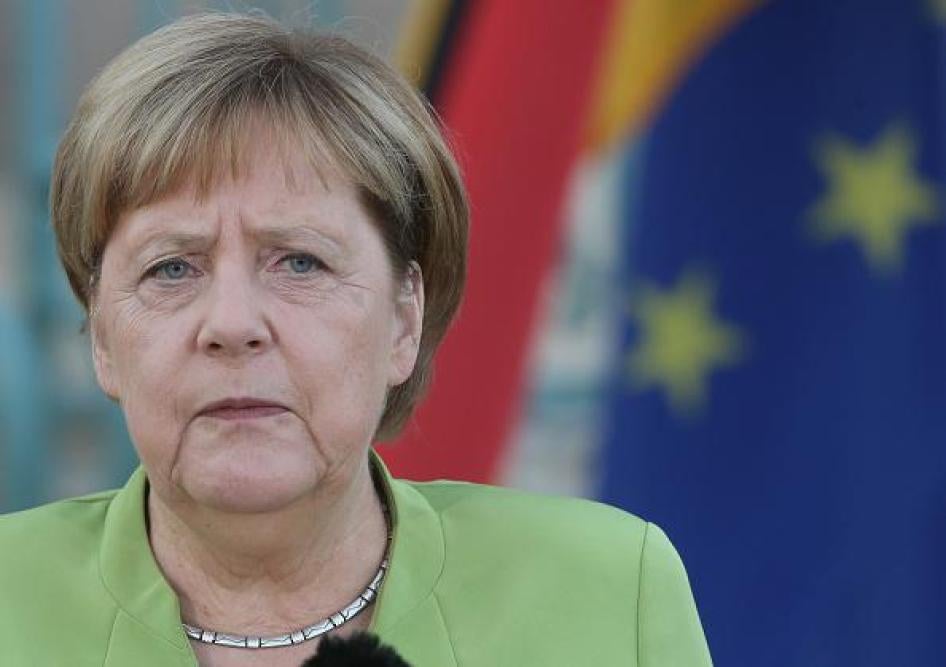The threat is real. Radical populist leaders promoting policies to dismantle human rights safeguards have recently joined governing coalitions in Austria and Italy. The Freedom Party and Lega Nord are using their positions to promote policies based on hate and intolerance. But in both countries, at least for now, complex governing coalitions make it hard for them to undo democratic institutions.
In Hungary and Poland, however, radical populist parties are in power alone. Fidesz and the Law and Justice Party (PiS) have seized the opportunity to undermine the rule of law and other democratic checks on their power.
In Poland, Jaroslaw Kaczynski's PiS is in the process of speeding up its purge of the country's judiciary, the last barrier against abuse by those in power, in defiance of ongoing proceedings in Brussels and Luxembourg and the outrage of many their own citizens. People's rights to peacefully speak out and protest have been increasingly restricted.
In Hungary, prime minister Viktor Orban's ruling party has been pressing "reforms" to strip people of rights and freedoms that enable them to band together and make their voices heard. For example, over the past two years the government has targeted the country's vibrant civil society and academic community, introducing a version of Russia's infamous "foreign agents" law to stigmatise human rights groups that receive funding from abroad and criminalising legitimate migration-related activities. The government has also limited the ability of the country's constitutional court to hold the government to account.
Officials in Poland and Hungary justify these measures by citing their parties' electoral victories, but winning an election does not give any government a blank cheque to undermine human rights protections.
EU response
European governments and institutions have begun to stand up to these disturbing trends in Poland. The European Commission triggered the EU treaty's Article 7 mechanism, which is designed to safeguard the EU's founding values. It is now up to EU governments to ensure that the assault on Poland's court system leads to serious consequences.
However, the European response to Hungary's unabashed authoritarianism has been woefully weak. For years, EU governments and institutions have accommodated, coaxed and warned the government of Hungary, all to no avail. Now, Orban is trying to spread his "illiberal democracy" beyond his borders.
A big test of the EU's commitment to human rights and the rule of law in Hungary will happen on 12 September.
Unlike with Poland, the European Commission has not triggered Article 7 for Hungary, so responsibility falls to members of the European Parliament. A two-thirds majority is required for action. Sadly, many Christian Democratic parties are sitting on the fence, more concerned with preserving their dominant political position in the parliament than defending the EU's core democratic values. Their political grouping, known as the European People's Party (EPP), is the largest in the parliament.
EPP tested
With new parliamentary elections due next year, EPP members may worry that they need Hungary's Fidesz votes to maintain their majority. But it would be profoundly wrong for EPP parliamentarians to prioritise their grasp on power over their duty to uphold the EU's rights-based order.
Several centre right parliament members, including Austrian and Dutch Christian Democrats and Ireland's Fine Gael, have supported triggering Article 7 for Hungary. Unfortunately, many others remain worryingly ambiguous, including members of Europe's largest centre-right parties within the EPP: Germany's 29-member Christian Democratic Union delegation, France's 20 Republicains, and Spain's 17 Partido Popular members.
It is time for Christian Democratic leaders to show where they stand. At stake is not only democracy in Hungary, but also the founding principles of the Europe Union.










